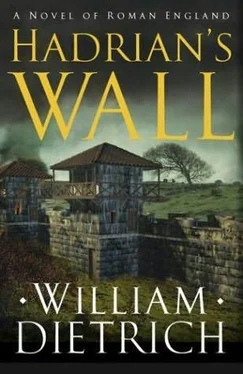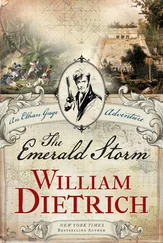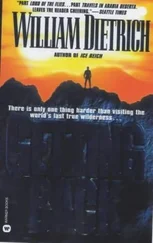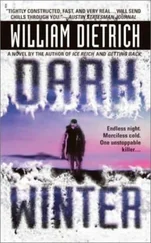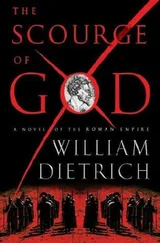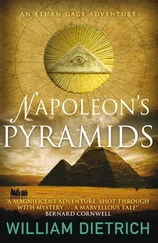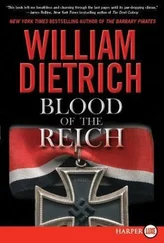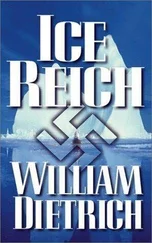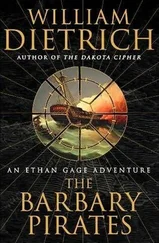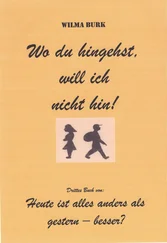William Dietrich - Hadrian's wall
Здесь есть возможность читать онлайн «William Dietrich - Hadrian's wall» весь текст электронной книги совершенно бесплатно (целиком полную версию без сокращений). В некоторых случаях можно слушать аудио, скачать через торрент в формате fb2 и присутствует краткое содержание. Жанр: Исторические приключения, на английском языке. Описание произведения, (предисловие) а так же отзывы посетителей доступны на портале библиотеки ЛибКат.
- Название:Hadrian's wall
- Автор:
- Жанр:
- Год:неизвестен
- ISBN:нет данных
- Рейтинг книги:4 / 5. Голосов: 1
-
Избранное:Добавить в избранное
- Отзывы:
-
Ваша оценка:
- 80
- 1
- 2
- 3
- 4
- 5
Hadrian's wall: краткое содержание, описание и аннотация
Предлагаем к чтению аннотацию, описание, краткое содержание или предисловие (зависит от того, что написал сам автор книги «Hadrian's wall»). Если вы не нашли необходимую информацию о книге — напишите в комментариях, мы постараемся отыскать её.
Hadrian's wall — читать онлайн бесплатно полную книгу (весь текст) целиком
Ниже представлен текст книги, разбитый по страницам. Система сохранения места последней прочитанной страницы, позволяет с удобством читать онлайн бесплатно книгу «Hadrian's wall», без необходимости каждый раз заново искать на чём Вы остановились. Поставьте закладку, и сможете в любой момент перейти на страницу, на которой закончили чтение.
Интервал:
Закладка:
"Shouldn't we break up the assault?" It was centurion Lucius Falco: capable, but too decent for his own good, in Galba's opinion. Falco was distantly related to almost everyone along the Wall because his family had served in garrison for six generations, and he thus had feelings useless to a soldier. In the old army the man would've been posted to a distant province where sentiment couldn't take root, but it was cheaper to leave officers in place these days. Such was modern Rome.
"We wait," Galba replied to the officers gathered around him. He sat in the grass and rotated onto his lap the scabbard holding his own sword, tapping the weapon's carved white hilt with rhythmic fingers. Rumor held that the grip was fashioned from the human bone of some particularly stubborn enemy, a tale the centurion did nothing to quench and had, in fact, started himself during a drinking bout through enigmatic hints and dour silences. Galba had long ago learned that it did no harm for a commander to inflate his reputation. He'd won fights with a glare.
"Wait?" objected Falco. "They're being skewered!"
"Listen to the wind," Galba rumbled. "By my ear a lot of the skewering going on is Scotti pricks into Cato's bitches, which simply seeds a bumper crop of barbarians for next summer. Meanwhile, most of our allies will get to a broch tower or scatter to the woods."
"But we rode fast through the night-"
"To set a trap. There's nothing more useless in battle than a tired cavalry mount."
Falco watched the smoke unhappily. "It's a hard thing to wait."
"Is it?" Galba's look took in all the officers. "For our barbarian ally to feel some pain and panic is not a bad thing, brothers. It reminds Cato how his pathetic cow-stealing, dirt-grubbing, pig-feeding existence would be even more hopeless if the Petriana cavalry weren't around to punish his enemies."
The decurions snickered.
"We're going to rescue him only after he's been robbed?"
"Watch and see if he's not happier for it, Falco! It's human nature to ignore prevention and appreciate a cure. We'll pick our ground for battle, and the wait gives the Scotti time to get drunk on Cato's beer, wear themselves empty on his wenches, and get winded carrying his loot."
"But to let them pillage-"
"Lets us kill them easier, and take it all back."
The blue-painted Scotti, tattooed and exultant, finally retreated toward their longboats at midmorning, the conflagration they'd lit so fierce that the smoke boiled like a thundercloud. The sorrow they'd brought lingered behind as a low keening; their booty weighted each warrior like a mule. The barbarians were drunk, blood-sated, and doubled over with looted prizes: grain, iron pots, woolens, scythes, jewelry, and several trussed goats and squealing pigs. Some of the prettiest wenches, sobbing and stunned, stumbled along with them, tied neck to neck by a rope. Most were bruised, their clothing torn to rags.
"There before you is today's practice, men," Galba told his cavalry quietly, riding up and down their hidden line. "Straw for your lance. Lubrication for your spatha."
He'd divided his command in two. Half still went to Falco, because he respected the man's ability as much as he was skeptical of his sympathetic heart. Now Galba's hundred came over the concealing hill two ranks deep, their upright lances a comb against the sky. The Roman shields were blood red and yellow, their chain mail rippled like gray water, and their helmets glinted silver in the autumn sun. They had the advantage of high ground and an unbroken, grassy slope. There were no trumpets and no cheers, their advance so quiet that it took some moments for the Scotti to even notice them. Finally there was visible shock at this sudden appearance of heavy horsemen on a hillside above and cries of warning. The livestock was dropped trussed in the grass. The female captives, now a distraction, had their throats quickly slit like sheep in a barnyard and fell like mown hay. Then there was a ragged formation of barbarian battle line and shouts of drunken defiance.
Galba gave them time to do it. "Easier to kill a Scotti in open combat than hunt him in the weeds." Britannia had been conquered by foot-slogging legionaries, heavy infantry that crushed every attack the frantic Celts could throw at them. It was held, like much of the empire, by cavalry. Once the barbarians had learned that they could not break the Roman legion, they turned to raid, feint, and ambush, relying on the lightness of their armor to outdistance pursuing foot soldiers. It was to the horse that Rome turned to run its enemies down, and to the horse-breeding provinces at the empire's periphery, such as Thrace, to find its cavalrymen like Galba. Both sides were in a constant race, the Celt to plunder and the Roman to block or catch him. With their hasta spear, three light throwing javelins, and long spatha sword, the cavalry could alternately break the barbarian line, harass it, or cut and chop in a general melee. Some army units on the Continent and to the east used heavily armored cataphractarii and clibinarii, who carried their heavy lances in two hands to break disciplined infantry formations. In Britannia, however, such horsemen were too slow, and cavalry stayed relatively light. War was a hunt, and Galba was its master.
The ring and clang of drawn Celtic swords carried clearly up the hill, the barbarians banging their shields to drum warning and fortify their own courage. The Roman mounts checked at the rumbling, the animals remembering this noise and knowing it meant battle. There seemed to be two leaders of the Scotti war party, Galba saw: a redhead to the left, with drawn sword and restless manner, and a great hairy blond lout of a pirate on the right, lumbering in front of his men with shouldered ax. Both chieftains gestured and shouted and raised their middle finger in what they'd learned was the Roman gesture of contempt.
Galba rested his own sword across the twin front pommels of his saddle in loose confidence. He'd ridden before he could walk, killed before he knew any woman, and could map his travels with scar tissue. Now came the anticipatory moment he liked best in life, that frozen time when the energy of warring men was coiled and almost breathless, the immortal pause before the practiced charge. He looked down the rank of men with whom he'd drilled and marched and shot and slept and shit, professionals all, and felt an intimacy with them that he'd never felt with any female. Each sitting high, his reins in the hand of his left shield arm, spear shouldered, helmet tight, legs dangling loose until the kick of the charge.
He loved war and what it could win for a man.
He loved the hunt.
"An eagle, tribune," a centurion commented.
Galba looked to where the man was pointing. The bird was riding the morning's rising tide of air, wings dipping as it rotated. The perfect sign.
"Look how the gods favor us!" he roared to his men. "A bird of Rome!" Then his black warhorse, Imperiurm, jerked at his nudge. "Forward!" Heels dug, and the Roman cavalry started downhill with a sure, awful, accreting acceleration, the discipline of constant practice keeping the line abreast and the lances pivoting down in synchronization as steady as the drop of a drawbridge gate. Their mounts quickened into a trot, the very earth beginning to quake, and the men bent, shield high, thighs tightening, each picking a target as the thunder of the attack swelled until it filled their whole world. Against a more disciplined enemy they would have formed a wedge or diamond to pierce the line, but the Scotti were so disorganized that the barbarians had left gaps, some backing from the approaching Romans, others foolishly running ahead and shouting challenge. The Romans would shred them with line abreast. The cavalry didn't break into gallop until the last fifty paces, so their line could remain even, Galba signaling the final rush with a wave of his sword arm. Then their mounts burst forward in the final sprint. Grass rolled underneath the cavalry in a blur, clods of earth burst upward like sprayed water, the pennants rippled in the wind, and each of the cavalrymen took up the cry of their ancestral homeland, of Thrace and Syria and Iberia and Germania.
Читать дальшеИнтервал:
Закладка:
Похожие книги на «Hadrian's wall»
Представляем Вашему вниманию похожие книги на «Hadrian's wall» списком для выбора. Мы отобрали схожую по названию и смыслу литературу в надежде предоставить читателям больше вариантов отыскать новые, интересные, ещё непрочитанные произведения.
Обсуждение, отзывы о книге «Hadrian's wall» и просто собственные мнения читателей. Оставьте ваши комментарии, напишите, что Вы думаете о произведении, его смысле или главных героях. Укажите что конкретно понравилось, а что нет, и почему Вы так считаете.
